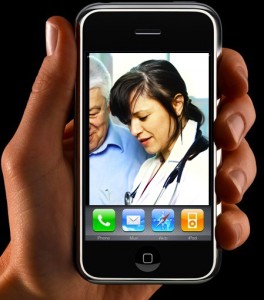 Mobile health is the future of medicine, according to a recent National Journal article.
Mobile health is the future of medicine, according to a recent National Journal article.
The author of the piece, Ceci Connoly, is a senior adviser to the McKinsey Center for U.S. Health System Reform. Connoly said that while the future of medicine includes breakthroughs and innovations on a number of fronts, while research her paper on the future of medicine, "what [she] heard about the most was the potential explosion of mobile health, the marriage of medical care and cell-phone technology."
She dubs the future of medicine "Doc-in-a-Phone." Connoly cites a 2009 McKinsey poll of 3,000 people in Brazil, China, Germany, India, South Africa, and the United States in which a third of respondents were willing to pay for mHealth services such as drug delivery, physician phone consultations, and remote monitoring with alerts.
The McKinsey report also estimated that the global market opportunity for mHealth in 2010 was a whopping $50 billion. By far the highest dollar amount to be quoted by a firm making predictions about mobile health.
"To make a truly significant impact, this burgeoning field will need to address fundamental problems such as chronic conditions, physician shortages, and the need for robust outcome measurement," Connoly writes in the National Journal piece.
Connoly highlights the growth of mHealth in developed countries from text message medication reminders to the expected rise of wirelessly connected medical devices. She mentions Pfizer's recent clinical trial that is being conducting remotely via smartphones and the internet, as well as the demise of Google Health. One of the reasons for Google Health's failure, echoing statements in our "10 Reasons Google Health Failed" analysis, was a lack of consumer appetite.
"In the decade ahead, the ubiquitous mobile device has the potential to help drive down skyrocketing medical costs, improve access, tailor therapies, and improve quality of life," Connoly writes. "But even more important, the medical community, technology companies, and regulators will have to overcome their differences if Doc-in-a-Phone is to deliver on its most ambitious promises."
Read the full story here.















